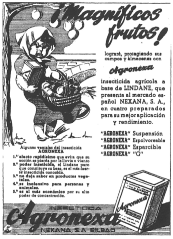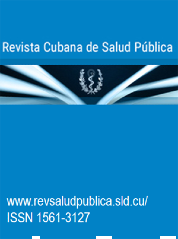July 2016
The traditional experiences of international cooperation of the North-South axis had been mostly vertical and authoritarian. In recent years, a new model of cooperation between middle-income and developing countries has emerged, in which its members develop horizontal relationships and effective dialogues; and make progress through mutual learning and shared benefits. Brazil has an important experience in this new kind of collaboration with the Cooperation Tripartite Brazil-Cuba-Haiti. The main goal of the articles of this issue is to contribute to an assessment of this experience, taking into account that the main categories of this new model should be the relevance and sustainable nature of cooperation.
It is worth noting that this tripartite collaboration, representative of the new cooperation model, had occurred in a country with a historical trajectory marked by the typical Caribbean political problems, challenges and changes, but marked as well by important struggles and resistances that helped to shape the contemporary world. Since the last decades of the twentieth century, especially after the fall of François Duvalier’s dictatorship in 1971, political and social instability, violence and the precarious conditions of living and health became features of Haiti. That started to change on June 1, 2004, when the United Nations began to articulate a series of international actions to restore a “supervised” democracy, to strengthen state institutions and to promote initiatives for the eradication of extreme poverty. It was a great challenge to act in one of the poorest countries in Latin America – an island-, with a population of about nine million inhabitants, of which 40% live in urban areas. In this context, was created the United Nations Mission for the Stabilization of Haiti (MINUSTAH), a military force for social and institutional stabilization, in which Brazil has achieved since the beginning a position of leadership. To worsen the country’s instability, on 12 January 2010, a 7.3 magnitude earthquake that strongly affected the southwestern region of the country struck Haiti. In a country already devastated by poverty, the earthquake aggravated the natural disasters scene of a region subject to hurricanes and tropical storms. Given the magnitude of the disaster, the national forces and aid agencies operating in the country realized that interventions require medium and long-term strategies, and that strengthening public health should be a key objective (The majority of the population lived in deplorable conditions in terms of basic sanitation and housing).

The national vaccination campaign was part of the cooperation between Brazil and Haiti. Photo: Fiocruz
The Tripartite Cooperation between Brazil, Cuba and Haiti began in 2011 with the aim of strengthening the Haitian health system. It Involved substantive funds donated by Brazil to the development of strategic actions. In Brazil, the project was leaded by the Ministry of Health, which sought support among national institutions for partnerships in the area of health training, including Fundação Oswaldo Cruz (Fiocruz), Universidade Federal de Santa Catarina (UFSC) and Universidade Federal do Rio Grande do Sul (UFRGS). In this process, the involved programs of Fiocruz, – Escola Nacional de Saúde Pública (ENSP), Instituto de Comunicação e Informação Científica e Tecnológica em Saúde (Icict) and Canal Saúde, all of them under the technical coordination of Centro de Relações Internacionais em Saúde (Cris) – were responsible for the training of health professionals in different areas, seeking for a horizontal and structuring cooperation. The Canal Saúde, in partnership with the Haitian Ministry of Health and local media, led communication strategies for health communication, such as the creation of community radio stations in the country inland. The Icict focused on cooperation activities to sustain the technological support of health education and develop information systems, resulting in the National Vaccination Campaign and in the Haitian Surveillance Network, Research and Education in Health, with the partnership of Ensp and UFRGS.
This issue of Historia, Ciências Saúde – Manguinhos features four articles describing and analyzing important aspects of this experience in the fields of epidemiology, physical and technological resource management in health and other biomedical dimensions of the South-South cooperation. Some studies use the social sciences framework, for example, investigating the Haitian migrants in the Amazon or addressing the ethnographic debate on international cooperation for health in Haiti. Together, the articles invite us to reflect on how to achieve a truly collaborative and sustainable format for structuring cooperation processes in the South-South axis, undoubtedly a major challenge for the countries of the Union of South American Nations (UNASUR). In this sense, they represent not only an academic contribution, but also a contribution to the debate about the policies of cooperation in medicine, education and public health between the nations of Latin America and the Caribbean.

I take this opportunity to thank Paulo Buss for applying the principles of structuring cooperation to the experience of the Tripartite collaboration between Brazil-Cuba-Haiti, and Luisa Regina Pessoa, whose suggestions and recommendations brought conceptual and operational elements for a more detailed analysis of the complex Haitian reality.
Carlos Linger, Centro de Relações Internacionais em Saúde/Fiocruz









